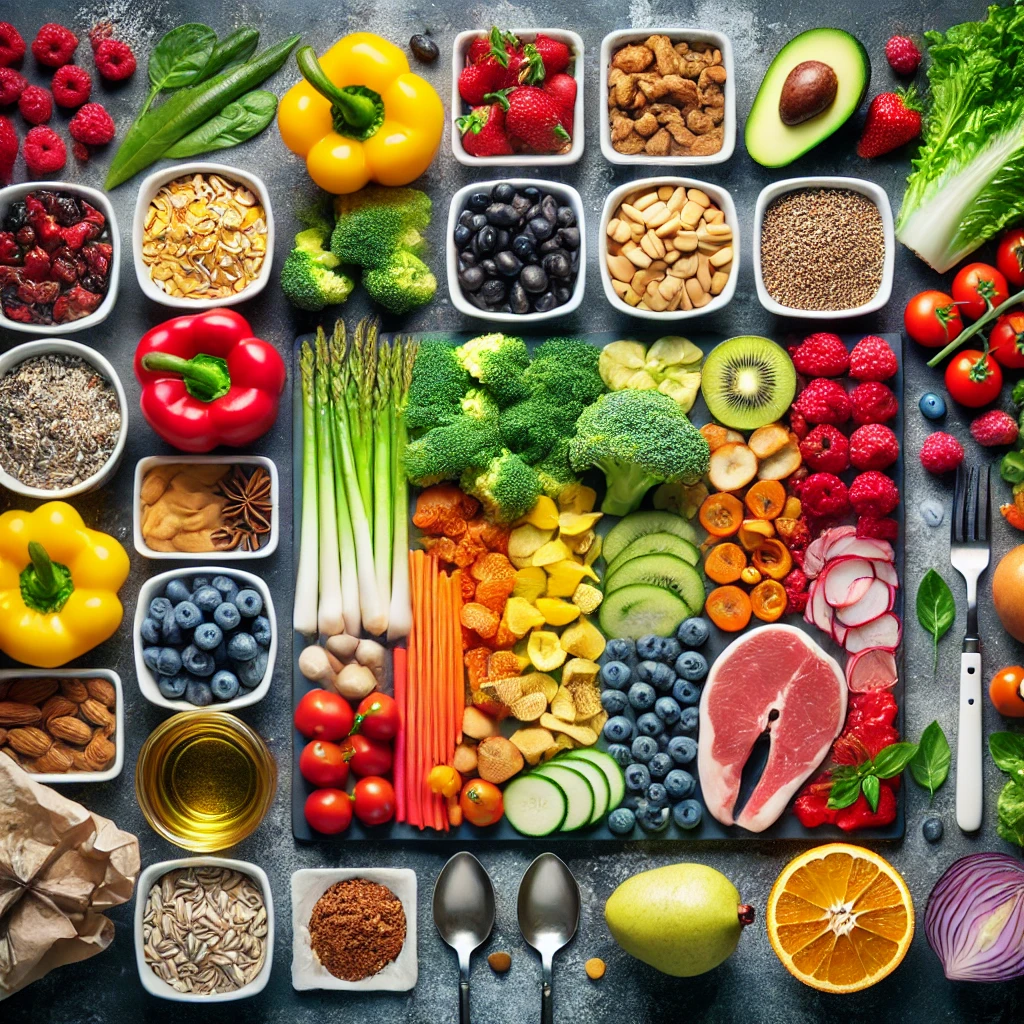
How to Build a Balanced Meal Plan for Optimal Health
Master the art of healthy eating and fuel your body with the right nutrients for a healthier, happier you.
Why a Balanced Meal Plan Matters
Eating a well-balanced meal isn’t just about looking good; it’s about feeling good. The food you consume directly impacts your energy, mood, and overall health. A good meal plan helps regulate digestion, supports fitness routines, and even enhances mental clarity.
Key Components of a Balanced Meal
A well-balanced meal should include:
- Protein: Helps build muscle and repair tissues.
- Healthy Fats: Supports brain function and hormone production.
- Carbohydrates: Provides the energy needed for daily activities.
- Vitamins and Minerals: Strengthen immunity and keep the body functioning optimally.
- Fiber: Essential for digestion and gut health.
How to Structure Your Daily Meals
Breakfast: The Most Important Meal?
Start your day with a mix of protein, fiber, and healthy fats. A smoothie with Greek yogurt, berries, and flaxseeds is a great option.
Lunch: Keep It Balanced
Opt for lean protein like grilled chicken, complex carbs such as quinoa, and plenty of greens.
Dinner: Light and Nourishing
Choose lighter options that still provide nourishment, such as grilled salmon with roasted vegetables.
Snacks: Healthy and Satisfying
Healthy snacks like nuts, hummus with veggies, or fruit can keep your energy levels steady throughout the day.
Healthy Eating Plans for Different Lifestyles
For Fitness Enthusiasts
Fuel your workouts with protein-rich meals and complex carbs. This supports muscle growth and endurance.
For Busy Professionals
Meal prepping is your best friend! Prepare balanced meals ahead of time to avoid unhealthy takeout choices.
For Those on a Budget
Affordable meal planning is possible! Stick to whole foods like beans, lentils, eggs, and frozen veggies.
Top Diet Trends for Weight Loss
From intermittent fasting to plant-based eating, here are the most effective diet trends:
- Mediterranean Diet: Focuses on whole foods, lean protein, and healthy fats.
- Keto Diet: Low-carb, high-fat for rapid fat loss.
- Intermittent Fasting: Eating within a time-restricted window to optimize metabolism.
Self-Care Strategies for Better Nutrition
Healthy eating isn’t just about what you eat but also how you approach food. Mindful eating, stress management, and staying hydrated all play a role in maintaining a nutritious diet.
The Role of Sleep in Mental Health
Did you know that poor sleep can lead to unhealthy cravings and weight gain? Quality sleep improves decision-making and reduces stress, making it easier to stick to a healthy meal plan.
Simple Meditation Practices to Curb Emotional Eating
Practicing mindfulness and meditation can help prevent stress eating. Try deep breathing exercises before meals to enhance awareness and avoid overeating.
How to Create a Personalized Fitness Plan
Pairing a balanced meal plan with a personalized fitness routine is key to achieving optimal health. Assess your fitness level, set realistic goals, and choose exercises you enjoy.
Affordable Fitness Routines for Busy Professionals
No time for the gym? No problem! Invest in affordable fitness equipment like resistance bands or follow online workout routines to stay active.
The Connection Between Sleep and Productivity
Eating well and sleeping well go hand in hand. Poor sleep can lower productivity, while a balanced diet fuels your brain for better focus and efficiency.
Final Thoughts
Building a balanced meal plan doesn’t have to be complicated. Focus on whole foods, listen to your body, and pair your diet with healthy lifestyle habits. Small, consistent changes can lead to long-term wellness.
FAQs
1. What are the easiest healthy meals to prepare?
Simple meals like oatmeal with fruit, grilled chicken with quinoa, or scrambled eggs with spinach are easy to make and nutritious.
2. How can I meal plan on a budget?
Buy in bulk, choose seasonal produce, and cook large portions to save money and eat healthy.
3. What foods should I avoid for optimal health?
Limit processed foods, sugary drinks, and excessive refined carbs to maintain a balanced diet.
4. Can I still eat my favorite foods while maintaining a healthy diet?
Yes! Moderation is key. Enjoy your favorite treats occasionally while focusing on nutrient-dense meals.
5. How do I stay consistent with a meal plan?
Plan ahead, keep meals simple, and find a balance that works for your lifestyle to stay on track.